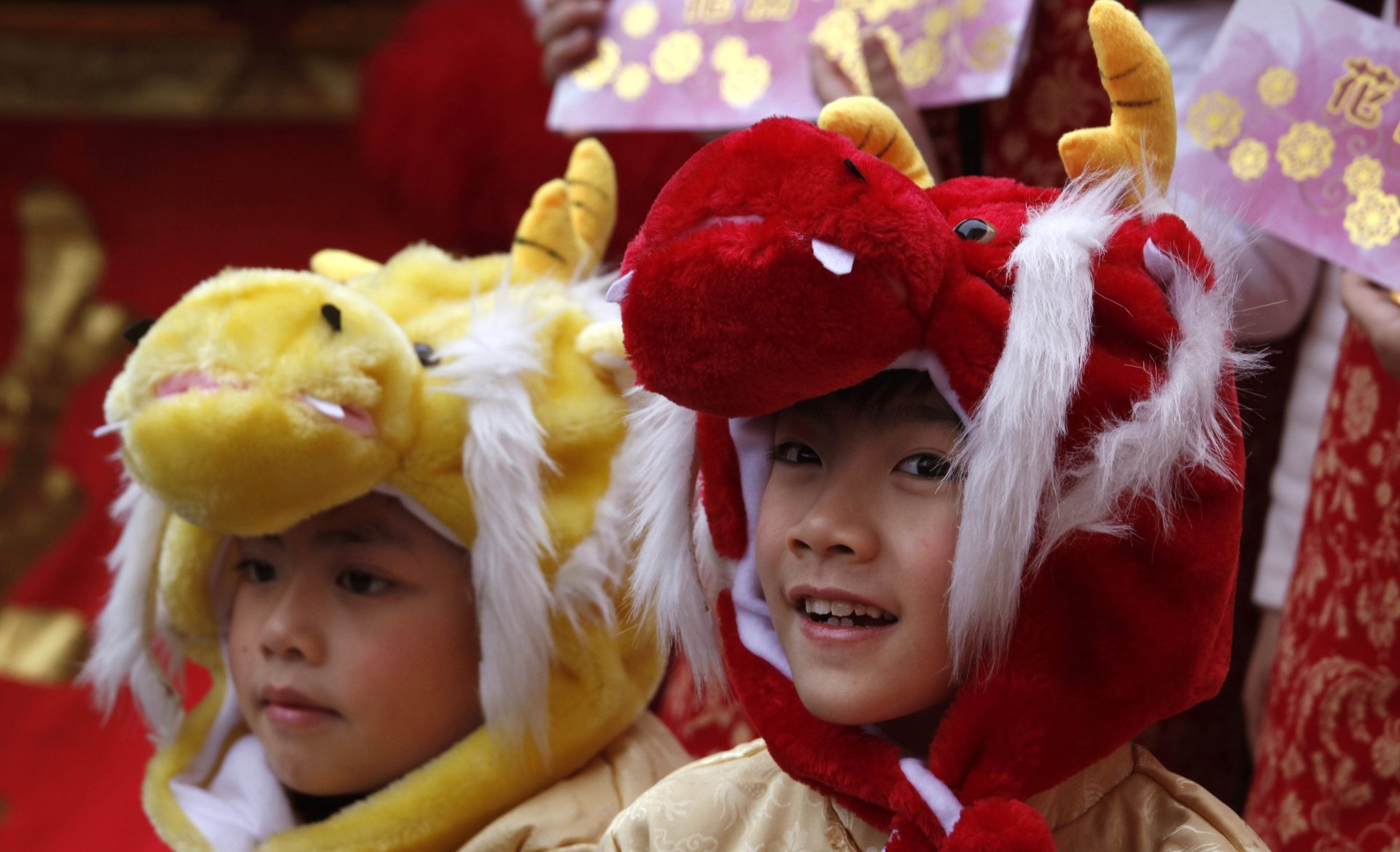Chinese children born in the year of the dragon are more successful—but not due to supernatural forces
No, children born in the year of the dragon are not born inherently superior.


No, children born in the year of the dragon are not born inherently superior.
Instead, the apparent success of these “dragon children” comes down to a lot of nurturing, according to two researchers at Louisiana State University (LSU) who studied the academic performance of people born in the year of the dragon in China. Due to the superstition that those born in that zodiac year will grow up to be more successful, places like China, Singapore, and Taiwan typically see a “baby boom” in those years. The last one fell in 2012.
In a working paper published this month by the US National Bureau of Economic Research, the researchers found that dragon children receive higher test scores in China’s national college examination and are more likely to go to university than people of a similar age born in other Chinese zodiac years. The researchers note that the findings come even as logically speaking, competition should be more intense for people born in the year of the dragon if there were more babies born in that year.
The researchers drew on recent Chinese surveys for the data to make the comparisons. These included an annual social survey that covers all provinces and includes birth year, and a survey of 5,000 randomly selected college students on their test scores. The paper has not been peer-reviewed.
A similar study published in 2011 in the Journal of Economic Behavior & Organization also found that Asian immigrants born in 1976, a dragon year, were better educated than comparable immigrants who were born in non-dragon years, while there was no discernible difference in education levels among children born in a dragon year in the US in general.
Both of these studies attribute the dragon babies’ apparent success to the parents’ behavior, shaped by their beliefs. “[T]hese results are not because of family background, student cognitive ability, self-esteem or student’s expectations about their future,” said the LSU researchers.
For example, parents of dragon children were more likely to take the initiative in contacting their kids’ teachers and enroll their children in kindergarten, while dragon children are less likely to be made to help their parents out with household chores, they found.
“[T]he parents of Dragon children have higher expectations of their children and they invest in their children more intensely. In the end, these higher expectations yield better educational outcomes. Put differently, these expectations create this self-fulfilling prophecy,” wrote the LSU researchers.